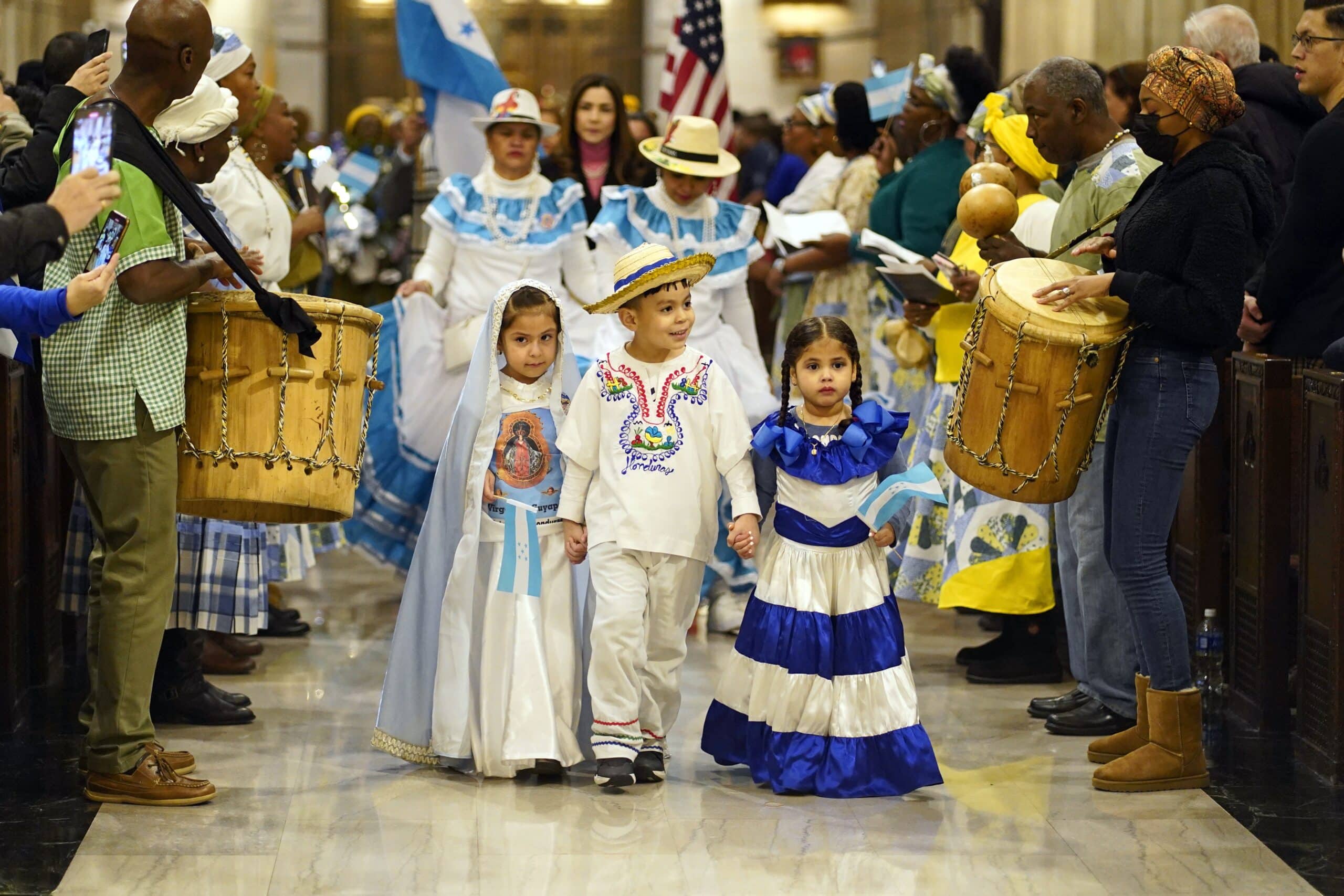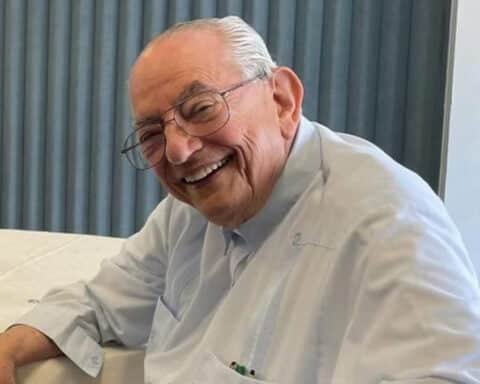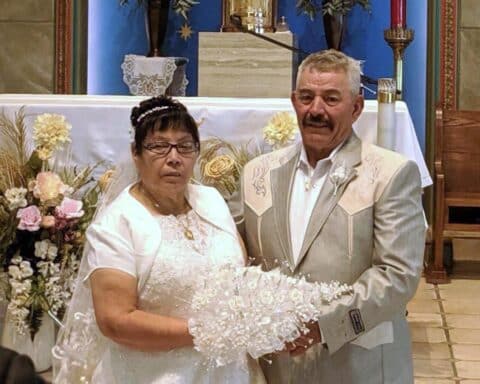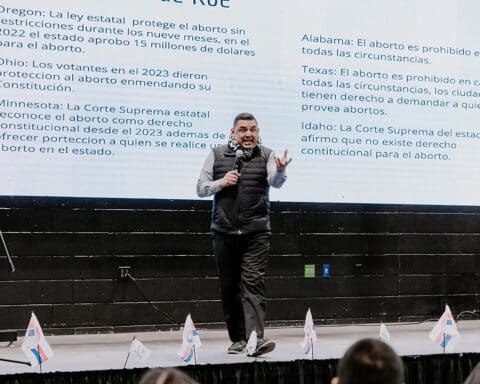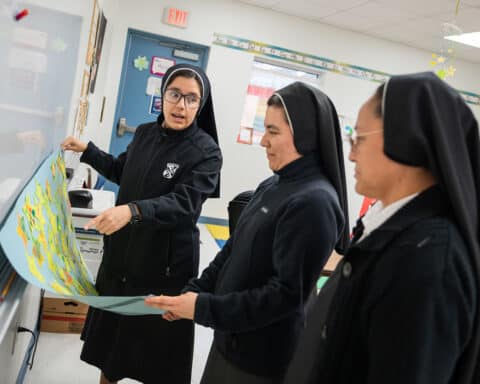WASHINGTON (OSV News) — Hispanics revitalize parishes and keep cities alive, clinging to their faith in God, family and church, which they see as a fiesta, according to Washington Auxiliary Bishop Evelio Menjívar.
During Hispanic Heritage Month, commemorated from Sept. 15 to Oct. 15 every year, the first Salvadoran bishop in the United States emphasized that popular religiosity is the treasure of God’s people and urged Hispanics to appreciate what they are and be ambassadors of their traditions.
During this month, “we do not celebrate the past but what we are and the legacy we are going to leave to future generations,” he said in an interview with El Pregonero, the Spanish-language publication of the Archdiocese of Washington.
He sees Latin American immigrants as the recipients of a wealth of culture, religion, traditions and ancestral wisdom, and as the heirs of that wealth. “We are not only talking about a historical legacy of the past but what we are today and what we can contribute from our Hispanic heritage to the rest of society and to the future,” he said.
He acknowledged that defining what Hispanics represent for the church is difficult.
“We are a cultural mosaic. To be Hispanic is to be part of that mosaic, of that cultural diversity that exists even within the Hispanic community itself,” he said. “We are white, Black, Asian, Indigenous, so we cannot be defined as a race. We are more than anything else; we are a culture, a way of living in this world immersed in a richness.”
Processions, vibrant Masses, joyful gatherings
Hispanic Catholics organize multitudinous processions, celebrate crowded masses full of emotion — in which they usually incorporate large images on platforms, dynamic music, colorful flags and typical costumes — and joyful gatherings where they taste and share dishes with the varied Latin American seasoning.
“Popular religiosity is a richness; it is the treasure of God’s people. Our Hispanic people are rich in traditions, in popular faith. Their faith is incarnated, rooted in reality and in the very life of the people. It is the faith that has become part of daily life,” the bishop said.
In most Hispanic homes, one first sees an image of the Virgin Mary at the entrance and then religious images on the walls. It is not a rational or theological faith, he says, but a faith that is lived, that is present in daily life. “It is what we are,” he said.
Hispanics feel the need to express their faith in different ways: in processions, in the celebrations of patron saint festivals, in carrying a rosary, a scapular or an image of the Virgin. These are signs of popular religiosity that Hispanics feel they have to manifest. “You can’t hide it because it’s who we are,” he said.
Bishop Menjívar says Hispanic people are bringing that richness, they are sharing it with others and telling people that a person has to live the faith in a spontaneous way.
“We have to feel proud of our faith, share it with others, without imposing it but rather proposing it,” he said.
Faith is a proposal, an invitation, to share with others what we are, what we have, said the bishop echoing the words of Pope Francis.
“It is the richness that we bring to the rest of the church, the pride of being Catholic; that we should not be ashamed to live in the public arena since it is important because it is what we are,” he added.
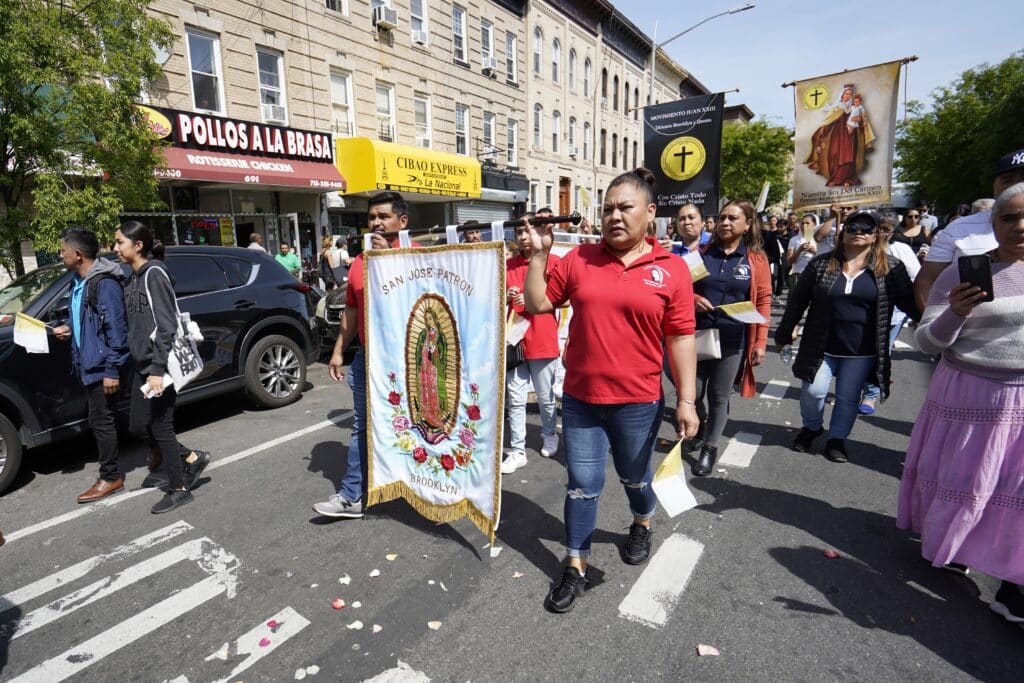
Welcome in American parishes
According to the bishop, Hispanic immigrants are very much welcomed in parishes by American people. Although he acknowledged that there is some friction due to lack of understanding because they have not known how to explain their traditions. If there is rejection, he says, it is not because of bad feelings but because of lack of knowledge and understanding.
“When you don’t understand, you don’t know, you try to put distance,” he said.
He extended an invitation to other U.S. Catholics to get to know their Hispanic parishioners, and urged Hispanics to learn to share traditions in a way that is understandable; to learn to translate and explain their culture.
“We have to be ambassadors of our traditions,” he said.
All Americans are expected to see Hispanic immigrants as fellow humans, he added.
“There are some very inhumane, anti-immigrant, racist expressions. The first thing to discover in the other person is common humanity,” the bishop said. “It is from there that we realize that we have another human being in front of us. No matter the race, the color, the religion, the sexual preference, it is a human being who comes with his own history of pain, suffering, persecution, poverty.”
The other side of the coin, which many Americans do not usually see, are the stories of people who have been called — invited — to share their talents. There is a great flow of intellectuals to the U.S. because of the opportunities that this country offers. They come with visas, with jobs, even with doctorates, to occupy leadership positions at all levels. For example, those who work in international organizations. They are immigrants who are contributing to the U.S. as well as Hispanic entrepreneurs.
“Many times, we think that the immigrant is only the undocumented, the refugee, the poor. Well, no. Human mobility is a worldwide phenomenon, which is not new and is multifaceted. It involves the whole drama and human endeavor, from success to defeat,” he said.
Immigrants making contributions
He emphasized that Hispanics are not only contributing a great deal to the church but also to the economy.
“They are keeping cities alive, which otherwise would be dead communities in decline,” he said of a phenomenon that can easily be seen in mining towns or cities where factories have closed.
Hispanics keep alive some towns and neighborhoods, churches and businesses in places that are not very attractive to investors. He cited as an example the small, very humble businesses that supply the minority communities and are growing.
“The immigrant communities, especially the Hispanic ones, are the most vibrant communities,” he acknowledged. We are distinguished by faith, family and celebration,” he said, recalling the words of Father Ovidio Pecharromán, the former director of the Arlington Diocese’s Hispanic Apostolate in Virginia.
Hispanics are characterized by a very lively faith and their love for their immediate and extended family. So, upon arriving here, the parish becomes a family, said the bishop, where after Mass, people stay talking, sharing, eating in community.
In particular, he referred to the immigrants who arrive alone to the U.S. and recalled that this was his case when he came to Los Angeles in 1990.
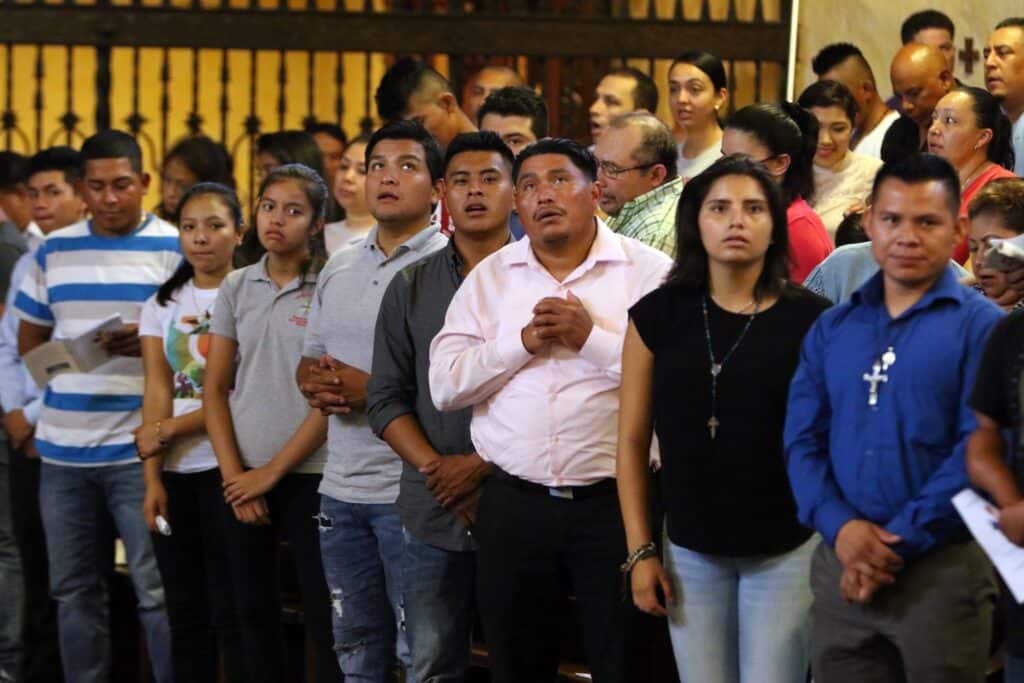
Longing for community
“I had no relatives, so for me the parish became my family. Going to lunch after Mass in the parish cafeteria was something I looked forward to all week,” he recalled. “I knew that I was not going to eat alone, but with a group of people I considered my family.”
For Hispanics, he said, the church is the party: the baptism, the quinceañera, the wedding.
“The faith experience becomes a party in which they celebrate the different stages of life: from birth to death,” he said.
Bishop Menjívar explained therein lies the big difference in how Hispanic immigrants live the faith. “We believe in the same thing, but the way we live it and manifest it through personal experience is what is different,” he said.
The bishop took the opportunity to make a call to parents: “It is important to find positive elements in our culture, of which you feel proud and want to transmit it to your children.”
He recognized that some habits from their countries of origin might be negative and should be cast aside to move forward to live differently. “We have to re-educate ourselves and learn from others, transmit what is positive and the rest we have to leave behind,” he said.
He is concerned that people live in a globalized world in which they easily lose their identity, as happens to many young people, he said, adding that it is the parents responsibility to transmit their cultural richness, and the language. Besides the advantages of speaking more than one language, he said, passing on their native language to their children shows them that parents value their roots.
He insisted on the importance of instilling values and culture in children.
“As Hispanic Catholics, we have much to offer the church,” he said, starting with their simple, tangible faith.
“What it means to be a Latin American Catholic must be understood with the senses, seeing the colors, hearing our music, smelling our dishes,” he said. “Hispanic Catholics have a very expressive faith that they do not hide, but live and exhibit with fervor and Catholic pride.”
Andrea Acosta writes for El Pregonero, the Spanish-language newspaper of the Archdiocese of Washington.

